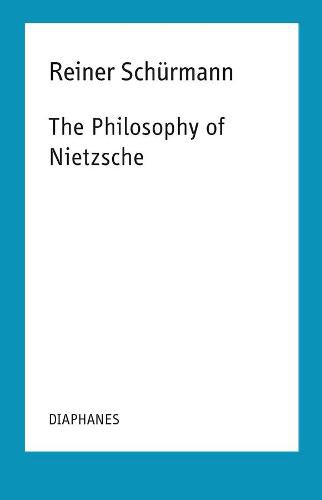Readings Newsletter
Become a Readings Member to make your shopping experience even easier.
Sign in or sign up for free!
You’re not far away from qualifying for FREE standard shipping within Australia
You’ve qualified for FREE standard shipping within Australia
The cart is loading…






Nietzsche praised Kant for having annihilated Socratism, for exhibiting all ideals as essentially unattainable, and for having exposed himself to the despair of truth-all essential traits Nietzsche claimed for his own thinking. At the same time, the existentialist philosopher remained highly critical of Kant.
This volume of Reiner Schurmann’s lectures unpacks Nietzsche’s ambivalence towards Kant, in particular positioning Nietzsche’s claim to have brought an end to German idealism against the backdrop of the Kantian transcendental-critical tradition. Rather than simply compare the two philosophers, Schurmann’s lectures help us to understand the consequences Nietzsche derived from Kantian concepts, as well as the wider horizon within which Nietzsche’s ideas arose and can best be shown to apply. According to Schurmann’s trenchant reading: if Nietzsche was indeed fatal to Western philosophy, as he claimed, he was so in large part because of the Kantian transcendental thinking from which he inherited the very elements and tools of his criticism.
$9.00 standard shipping within Australia
FREE standard shipping within Australia for orders over $100.00
Express & International shipping calculated at checkout
Nietzsche praised Kant for having annihilated Socratism, for exhibiting all ideals as essentially unattainable, and for having exposed himself to the despair of truth-all essential traits Nietzsche claimed for his own thinking. At the same time, the existentialist philosopher remained highly critical of Kant.
This volume of Reiner Schurmann’s lectures unpacks Nietzsche’s ambivalence towards Kant, in particular positioning Nietzsche’s claim to have brought an end to German idealism against the backdrop of the Kantian transcendental-critical tradition. Rather than simply compare the two philosophers, Schurmann’s lectures help us to understand the consequences Nietzsche derived from Kantian concepts, as well as the wider horizon within which Nietzsche’s ideas arose and can best be shown to apply. According to Schurmann’s trenchant reading: if Nietzsche was indeed fatal to Western philosophy, as he claimed, he was so in large part because of the Kantian transcendental thinking from which he inherited the very elements and tools of his criticism.